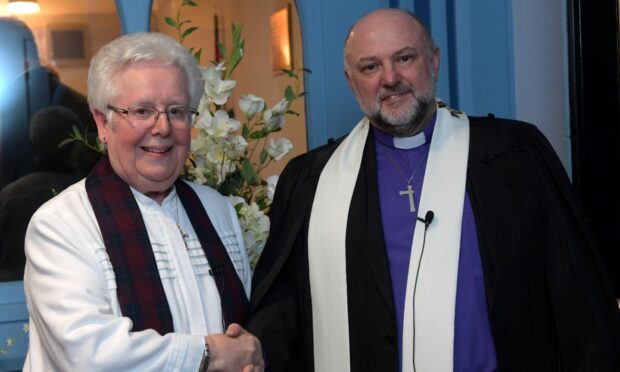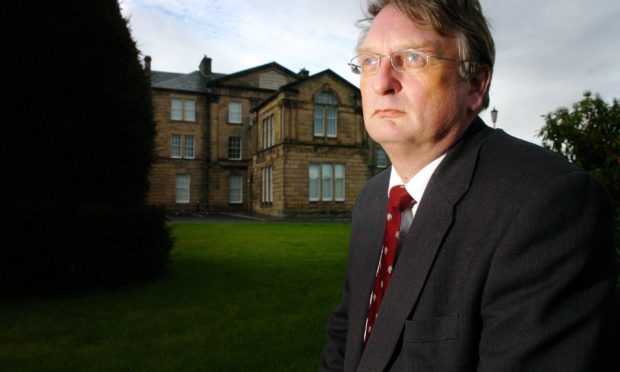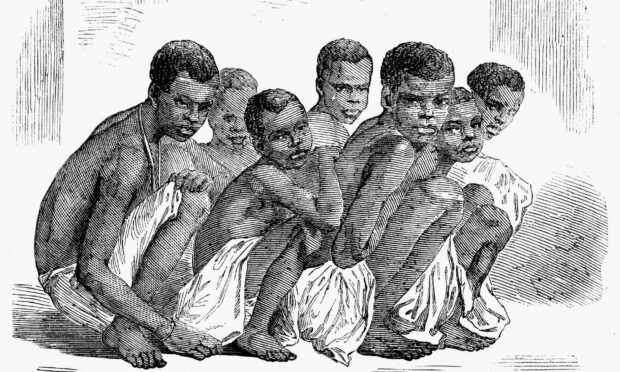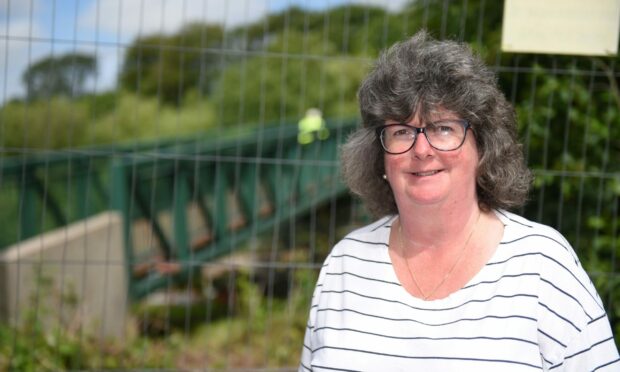The ruling administration at Aberdeenshire Council has been condemned for failing to take a stand against slave-trade “blood money” in local schools.
Members of the Conservative-Liberal Democrat-Independent alliance ignored pleas to sever the council’s links to the £1.8 million Dick Bequest, which was established almost two centuries ago with profits made from a brutal human trafficker.
They opted to press ahead with plans to appoint two new governors to the trust, arguing it was better to be “in the tent” arguing for change, rather than outside it.
But the reasoning has been criticised as “spurious” by Reverend Carl Irvine, of St Andrew’s Church in Inverurie, who was “shocked” to learn of the fund’s origins.
‘Divide the spoils’
Rev Irvine, who sits on the council’s education committee, claimed the trustees were only in the tent to “divide the spoils”.
And opposition SNP councillor Louise McAllister said the decision meant the council was perpetuating the trust and “normalising slavery”.
The Ellon representative had called on the education committee to take a stance and refuse to name any governors at a meeting earlier this month.
Administration members rejected the plea and appointed councillors Andrew Hassan and Gordon Lang.
Council U-turn
The move appeared to represent a U-turn on a commitment made by the council’s former leader, Andy Kille, who vowed last year that the local authority would “no longer support that trust”.
Before the summer, the council had delayed a decision on appointing new governors.
The bequest was established following the death of James Dick in 1828. It has been offering grants to teachers and schools in Aberdeenshire and Moray for almost two centuries.
Last year, the shocking truth about the way Mr Dick made his fortune was revealed by two historians, David Alston and Donald Morrison.
They called for the remaining money to be returned to Jamaica.
However, the trust which oversees the bequest has been heavily criticised for failing to take any action in response to the research.
Who appoints the trustees?
It is run by 10 governors, of which five are lawyers elected by the Society of Writers to the Signet.
A further two are put forward by the senate of Aberdeen University and three are appointed by Aberdeenshire and Moray councils.
To try to find a way forward, Mr Alston called on the organisations involved to refuse to reappoint their trustees, enabling regulators to intervene and take control of the cash.
But the proposal has now been rejected by Aberdeenshire Council.
Speaking last week, Councillor McAllister said: “I am hugely disappointed by the decision of the administration of Aberdeenshire Council to appoint two trustees to the board of the Dick Bequest fund.
‘Blood money in our schools’
“In the face of unequivocal evidence that this money was founded in slavery and the slave trade, I would have thought a joint stance against the further use of this blood money in our schools and for our children would have been a more appropriate reaction to the request to submit nominations.
“This is especially true when previous trustees have, by their own admission, been unable to effect change from within and so we are simply perpetuating this trust as well as normalising slavery and the slave trade which is well documented and which, tragically, carries on today.”
Rev Irvine said the “only honourable thing” to do would be to repatriate the fund.
“In my view, the trust should be wound up and money given, possibly to educational purposes, but for people in Jamaica, as some sort of reparation, apology – whatever you want to call it,” he said.
“Now knowing the history of the thing, rather than continuing for us to benefit from it, we can’t possibly apologise enough to the folks that were ripped from their homes in Africa and transported in unspeakable conditions to a life of slavery, but we can do something about easing life for their descendants.”
On the administration’s reasoning, he added: “I think it’s a somewhat spurious argument because they are not in the tent to make changes, they are in the tent to divide the spoils, as it were.
“If I’m wrong and they do, from their position within the tent, seek to wind the thing up, then I will take it back and say ‘well done them’.
“But I’m not going to hold my breath.”
Education committee chairwoman Gillian Owen said she had asked for a workshop to be held on the topic before the committee meeting, but that not all members attended or listened back.
“After careful consideration following the workshop the admin group majority view was to continue to participate in the Dick Bequest, to ‘stay in the tent’ so to speak, to influence change, but have the fall-back position to withdraw if we are not seeing any move to use the fund differently,” she said.
“Members would like to see it used for anti-slavery/human rights education.
“It was acknowledged that whether we took part or not the money would still be spent but by being at the table we would try and affect the change necessary.”





